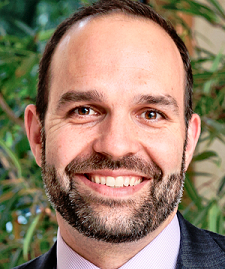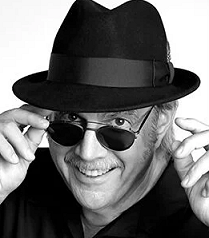Advertisement
|
LeGeyt Urges Congressional Action on Local Broadcasting
| RADIO ONLINE | Wednesday, September 13, 2023 | 3:36pm CT |





|
 |
NAB President and CEO Curtis LeGeyt testified on Wednesday at a House Communications and Technology Subcommittee hearing titled "Lights, Camera, Subscriptions: State of the Video Marketplace." In his testimony, LeGeyt urged congressional action that would enable broadcasters to fairly compete and expand viewer and listener access to our indispensable service.
Specifically, LeGeyt's testimony called for Congress to pass the AM Radio For Every Vehicle Act and legislation reinstating the Diversity Tax Certificate program, as well as encourage the FCC to modernize broadcast ownership rules, create a more transparent, fair and predictable process for broadcaster transactions, and refresh the record in its vMVPD proceeding.
Below is his testimony, as prepared for delivery:
"In today's media landscape, television and radio broadcasters' value proposition stands alone. We are the most trusted, we are the most local, we offer the most in-demand sports and entertainment programming and we are freely available to any viewer or listener who wants to access our stations over-the-air. For those reasons, we are also the most popular. More than 181 million adults watch broadcast TV each month, and more than 227 million listeners tune into broadcast radio each week.
Most importantly, we are lifelines in times of emergency when internet and cell networks fail. Consider the wildfires that recently ravaged the island of Maui - destroying homes, lives and businesses, and forcing thousands of people to evacuate. For days there was no power, no water and no internet service. Fiber lines and cell phone towers burned to the ground. But broadcasting remained one of the few dependable sources of communication, providing round-the-clock updates on the fires, emergency supplies and shelter that kept people safe. And tragically this is not unique - whether it is tornados in Ohio or flooding in California, broadcasters are there.
Yet broadcasters' investment in this service - all freely available to the public - does not exist in a vacuum. We compete in a fierce media landscape that has been dramatically reshaped by changes in technology and an avalanche of content options.
Today, we compete for audience, advertising dollars and content rights with cable, satellite, podcasts, digital platforms and (most significantly) big tech. Yet despite these industry changes, broadcasters remain uniquely subject to rules governing our scale and scope from a bygone era. Unlike TV broadcasters, no rule restricts YouTube or TikTok's audience reach to 39% of U.S. households. Unlike radio broadcasters, no rule limits Sirius XM to offering only five channels in one local market.
And our competitors have no obligations or incentive to provide the local news, weather, sports, public affairs or emergency information that our audiences rely on. We offer a public service that our competitors do not replicate, yet we do all of this while competing with one arm tied behind our backs.
To that end, more must be done to ensure fair competition and continued consumer access to our essential service.
This committee should urge the FCC to immediately take four actions:
- First, the FCC should complete its 2018 quadrennial review and modernize its broadcast ownership rules to account for the rise, and increasing dominance, of digital media.
- Second, the FCC should refresh the record in its virtual MVPD proceeding to ensure it reflects the impact of streaming on viewer access to local stations; and
- Third, the FCC should create a more transparent, fair and predictable process to review broadcast transactions.
- Finally, the FCC should continue supporting the rollout of NEXTGEN TV.
Additionally, this committee should focus its legislative efforts on two bills:
- The AM Radio For Every Vehicle Act, which will ensure continued access to AM radio as a safety standard in automobiles, and
- Legislation to reinstate the Diversity Tax Certificate program, which will help broadcasters better reflect the diversity of the communities we serve.
In conclusion, America's broadcasters are extremely proud of our service to your constituents. But importantly, we must acknowledge that our role is not accidental. It is a shared success between our industry and a legal framework that was created and refined by generations of this Committee. While some on this witness panel may criticize elements of it, our blend of local and national programming that is uniquely tailored to every community across the country, is one of the true success stories in a century of telecommunications law. As a result, our free and local broadcast system remains the envy of the world.
Advertisement
|
Latest Radio Stories
Connoisseur Media Closes MO, MN, SD Station Sales
|
2026 NAB Show Expands Sports Summit to Four Days
|
Sean Spicer Launches Sunday Show on WABC New York
|
Advertisement
|
Veteran L.A. Personality Uncle Joe Benson Dead at 77
|
Star 92.9 Burlington VT Adds Adri Stuhr to Afternoons
|
Noiser Launches ''Real Vikings'' Podcast
|

















